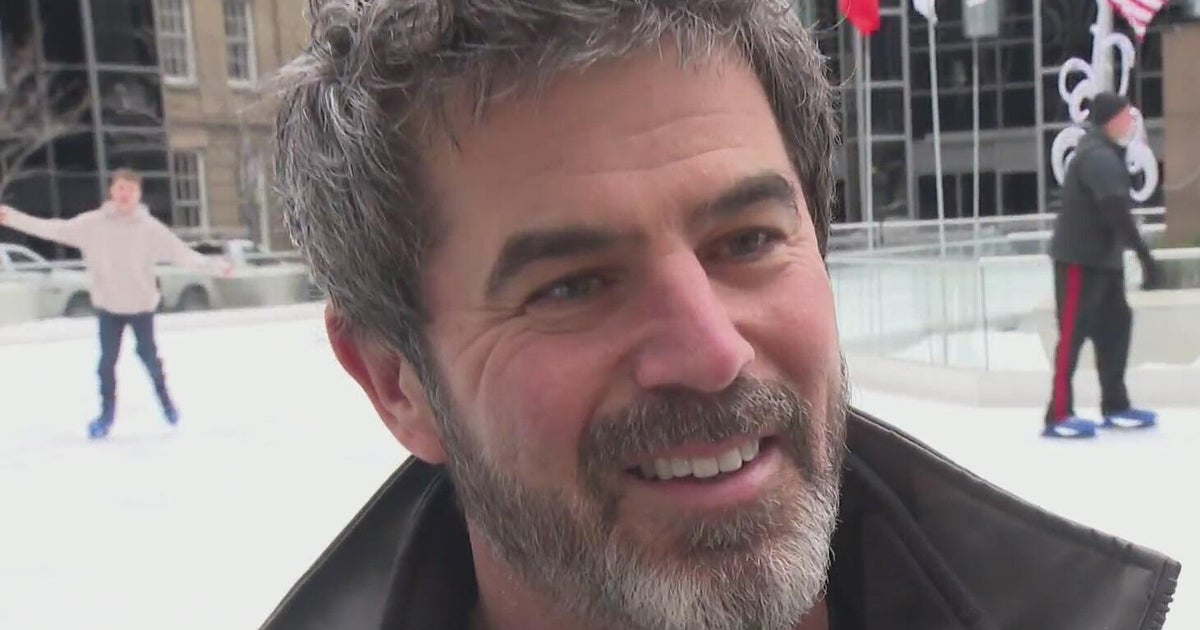Transcript: Ukrainian Ambassador to the U.S. Oksana Markarova on "Face the Nation," March 20, 2022
The following is a transcript of an interview with Ukrainian Ambassador to the U.S. Oksana Markarova that aired Sunday, March 20, 2022, on "Face the Nation."
MARGARET BRENNAN: We turn now once again to Ukraine's ambassador to the U.S., Oksana Markarova. Madam Ambassador, thank you for coming back. I want to ask you about these horrific reports out of Mariupol. A local government official there said that the Russian military is moving people into camps and moving them out of the country. Do you have any insight into what is happening on the ground?
UKRAINIAN AMBASSADOR TO THE UNITED STATES OKSANA MARKAROVA: We're hearing all these horrific reports about targeting the school, the art school with four hundred people hiding in the basement, about, you know, retirement home in the Crimean there and elsewhere, where more than 50 people died from from shelling. And what happens in Mariupol is- is an epitome of war crime. I mean, encircled city without food, without anything for 13 days, 14 hour days putting a resistance. And instead of simply opening humanitarian corridors as we agreed and letting people out and getting supplies in, Russians are just trying to take the city down. So, and people in the city continues to fight. So all our hearts go out to them and we're trying to do everything possible on the diplomatic front and elsewhere, to- to help the people of Mariupol.
MARGARET BRENNAN: Does the government have any idea exactly where these people are being moved? I mean that the reference to camps was compared to World War Two, when Nazis forcibly moved people into other countries.
AMB. MARKAROVA: Well, we saw it in, again. I don't want to- to say any information that we don't have the exact proof. I mean, we hear all the reports and have it, but we saw it also in the cities, smaller cities that were taken or occupied by Russians where they would let people outside of the prison. They would try to either call- catch our mayors and imprison them, cage the activists and imprison them. So that's an M.O.of these war criminals and we see the protest in all the cities, you know, even in the cities like on a daily basis today and Kherson and others. People are coming out with protest against Russians, not only the armed forces, not only the police, but ordinary people. Everyone want them to go- to go home.
MARGARET BRENNAN: This week, your president made an emotional speech to Congress. Congress authorized $13 billion in emergency support to Ukraine. But one of the things your president said was a personal appeal to President Biden, to be leader of the nation of this great nation, but also to be leader of the world. President Biden goes to NATO this week. How do you want him to lead the world? What is the U.S. not doing still?
AMB. MARKAROVA: Well, we've seen exceptional leadership from the U.S. during the past three weeks, and deterring Putin before the war, trying and helping us a lot during the first weeks of- of- of this war. Now we all have to understand that even though we all are united in this effort in helping Ukraine, Putin is not changing his behavior. It's quite different. He's actually turning into- to terror and doing what the war criminals do, not- not what the armed forces are doing. So, it's a clear message to all the civilized world that we have to step up too. Ukrainians will not give up. We will continue defending our homes. We don't have any other choice. And I think it's- it's- it's time that every passing day is a chance to stop this war, and every passing day we have to be discussed and all of us together, the civilized world, the United States, NATO countries, but also others like China, discuss what is- what is more, we can do to stop it.
MARGARET BRENNAN: Ukraine's constitution references joining NATO, but your president has said even just a few days ago that Ukrainians must admit the West has indicated Ukraine won't be a member of NATO. Is he signaling room for more of a diplomatic opening there? I just keep hearing that the diplomacy goes nowhere.
AMB. MARKAROVA: Well, look, let me be very undiplomatic here. So, when murderous maniac catches somebody who attacks somebody on the streets of the city, do we ask a person, a victim, you know, what is it you are ready to give up? Leg?, Arm to stay alive? What is it that you are ready to- to give up in order to- to be alive? No, we call the police. We stop this and then we discuss what can we do to punish the criminal and help the victim? So I think this is- this is where we are right now. We are fighting, heroically, our armed forces and people to defend our home. Now, of course, from the day one, our president said we would like this to stop. We are ready to negotiate. Negotiate does not mean to surrender. We are not ready to give up on either our dreams or on the territorial sovereignty or integrity. But we are ready to negotiate even with the brutal enemy in order to stop it. And we are asking all of our friends and allies to help us to A: fight successfully, but also to put all the pressure so that Russia negotiates.
MARGARET BRENNAN: Secretary of State Blinken said this week that a simple withdrawal of troops by Russia won't meet the U.S. standard for lifting sanctions. Something more irreversible needs to have- happen here. What is he laying out here? What is the Ukrainian vision?
AMB. MARKAROVA: Well, I will- I will let Secretary Blinken to- to- to say what he said, but for us, clearly, I mean, it's a brutal attack. We've lost people. Many of our cities are destroyed and still had been destroyed. We've lost 60 universities completely. I mean, they're erased from there. So, we need this to stop. They need to stop and get out from- from- from- from Ukraine. But we also need to be talking about reparations, about the security guarantees and everything else. We need to know that this attack, which I want to remind, is not the first attack. Russia attacked us in 2014. Russia attacked us in 1918. So we know that the goal that Russia has in this now, as it used to have in the past, is to destroy Ukraine.
MARGARET BRENNAN: Ambassador, thank you for your time as always. we'll be back in a moment.



